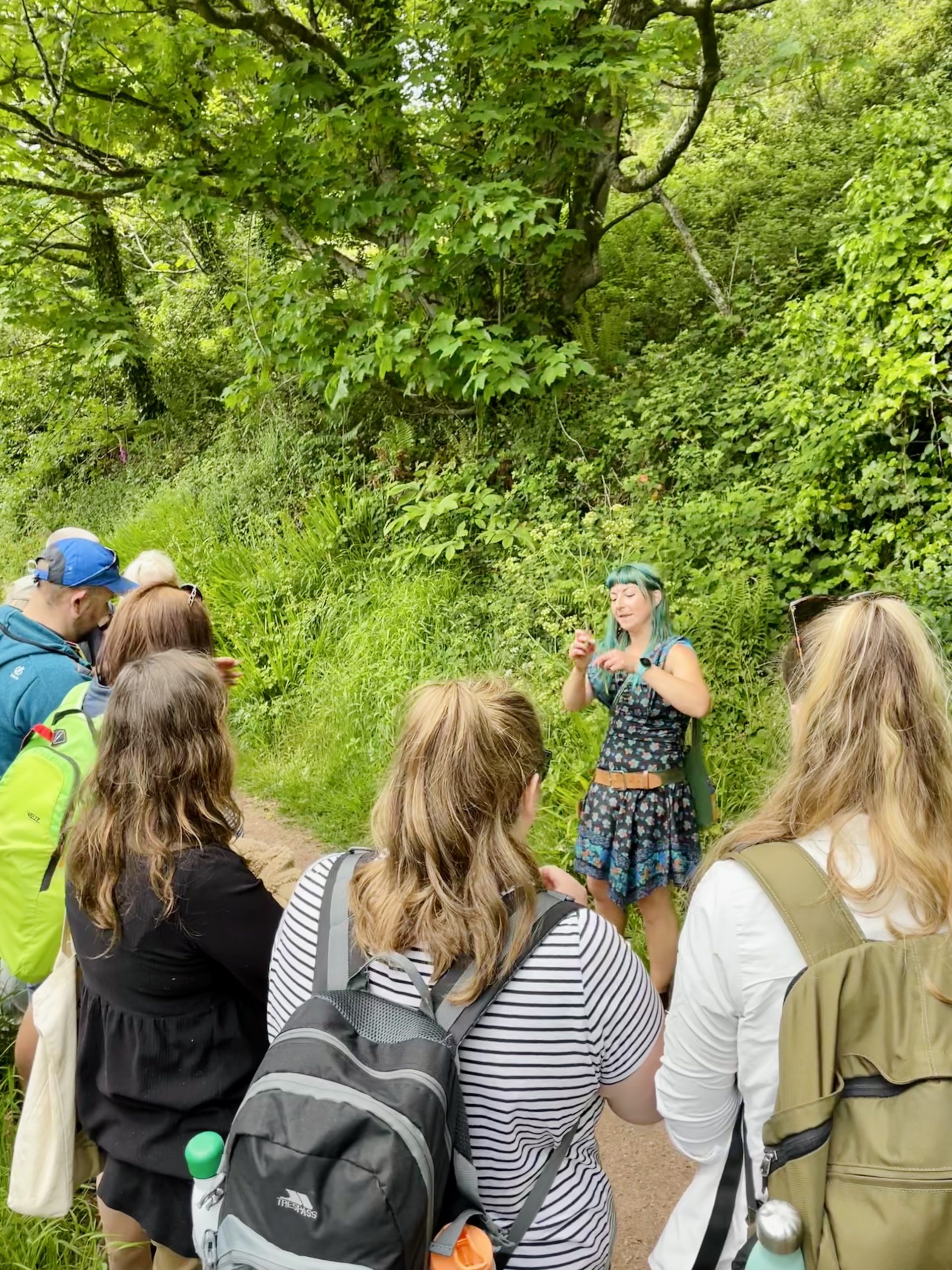The act of sourcing one’s food from the wild is remarkably powerful and its why we continue to offer free foraging walks to communities across Cornwall. It creates opportunity, a chance to see the hedgerows and shores in a more intimate way. The landscapes that once appeared to be wholly green are revealed to actually host a variety of characters, flora, foliage, fruits, and fungi with their own role. By taking the time to learn about each one, there is the realisation that our local environments are bountiful, that they can not only offer natural sanctuaries but also nutrition and flavour.
Suddenly, even having built a relationship with only a few plants, individuals can begin dramatically changing their approach to food. Diets become more diverse, food bills less expensive. Why use spinach when there are nettles down the road? Choosing the ingredients for one’s meal involves less time pacing through supermarket aisles as individuals take to the outdoors instead. Cross mushrooms off the list, I saw some chicken of the woods earlier! Meals begin to be made from seasons and experience, forming from an appreciation of the local ecology.
And this is an important point, the appreciation of nature. A common criticism of foraging is that if a greater number of individuals begin to take food from the wild, then the wild will be decimated. Putting the current impact of industrial farming aside, there is an understandable concern. However, those who forage, those who spend time in nature and seek to learn about the soil, the roots and mycelium, the climate – they are the ones that most often want to preserve it.
Historically, foraging has consistently empowered a number of individuals and communities. However, in recent decades, we have stepped away from this relationship. It has become less important, less efficient. Except, that is, when it becomes more essential. And, over the last century, foraging has seen a surge in practitioners during three significant times: World War I, World War II, and now.
There are a number of reasons as to why residents across the UK are once again turning to nature to source their ingredients. Rising costs of living are surely one of the most significant, with foraging offering a way to supplement food bills with fresh and free ingredients. There’s also an element of climate change too, with individuals recognising that many of the systems we rely upon for our food are not sustainable.
Perhaps most importantly, however, is health. COVID and the resulting lockdowns demonstrated how important nature is to our well-being, prompting many to rebuild this relationship. Outdoor activities grew in popularity, communities wanting to be outdoors. Foraging not only offered a way to immerse oneself in landscapes but with ingredients, dyes for fabric, and fibres for creation. Strolls through the countryside or along the coast, through woodlands or parks, each became an opportunity for creativity and restoration.
The Help We Offer
For low- and no-income households, we offer free foraging walks to Cornwall’s residents. Those residents who fit our criteria are able to join our schedule of foraging walks alongside ticketed customers for free. Each place is offered with total anonymity, meaning that, once the course begins, there is no distinction between paying and funded places.
To support attendance and ensure that households are not missing out on these educational opportunities due to logistical concerns, we are also offering transport options for Free Food Forever attendees who would like to attend our courses but are unable to due to limited public transport or travel cost concerts.
By empowering individuals and households with the knowledge and confidence to begin foraging, lives can very easily be improved. Food spends can be reduced, time outdoors increased, and, as a greater relationship is built with nature, our landscapes improved.
For more information on our Free Food Forever initiative and to sign up, please visit our community projects page, here. We look forward to welcoming you to our courses!
